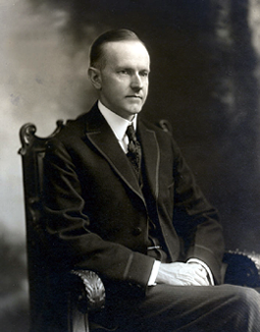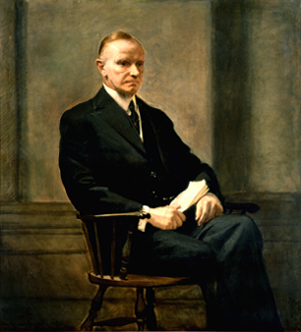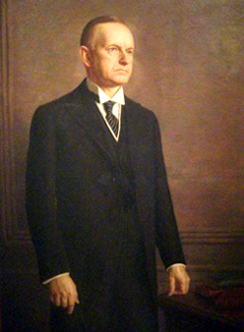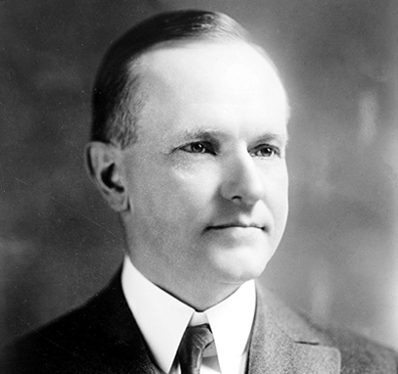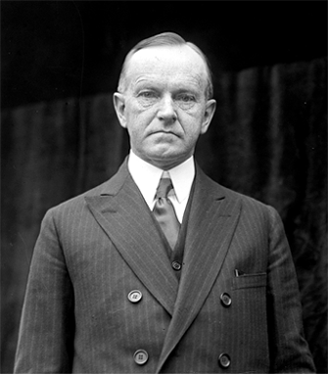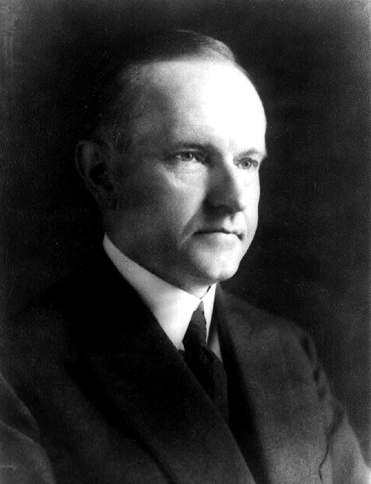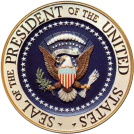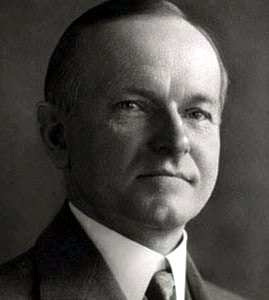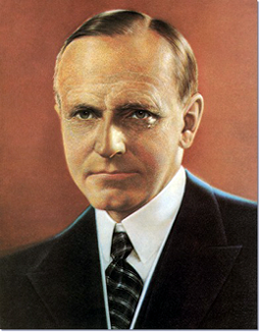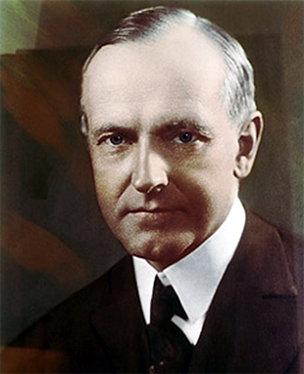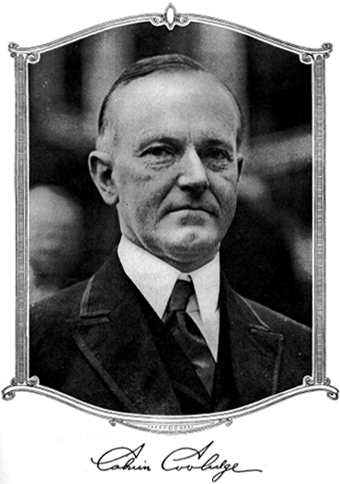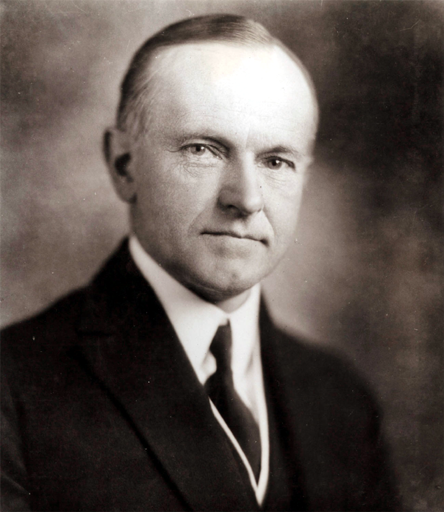|
CALVIN COOLIDGE |
|
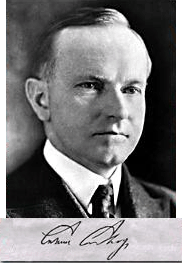
THE 30TH PRESIDENT OF
THE UNITED STATES OF AMERICA
(1923-1929)
COOLIDGE, (John) Calvin
(1872–1933), 30th president of the U.S., who served from 1923 to 1929. In a rapidly changing society, he expressed traditional small-town values.
Early Career.
Born in Plymouth, Vt., on July 4, 1872, Coolidge attended Amherst College (B.A., 1895), studied law, and was admitted to the bar. In 1905 he married Grace Goodhue (1879–1957), whose social sophistication contrasted markedly with her husband’s sometimes curt manner.
Coolidge began to practice law in Northampton, Mass., where he was regularly elected to local office until he became lieutenant governor (1916–18) and governor (1919–20). Brought to national attention by his suppression of a police strike in Boston—with the assertion that "there is no right to strike against the public safety by anybody, anytime, anywhere"—Coolidge was chosen by the Republican National Convention as the party’s nominee for vice-president in 1920, on a ticket headed by Warren G. Harding.
President.
Elected with Harding in a landslide, Coolidge succeeded to the presidency upon Harding’s death in 1923. Untainted by the scandals within the Harding administration, he was free to force the resignation of Harding’s attorney general, Harry Daugherty (1860–1941), and institute other reforms. Nominated for president in his own right in 1924, Coolidge won easily.
Domestic policies.
Coolidge’s conception of presidential leadership differed sharply from the activism of other 20th-century U.S. presidents. Endorsing the Jeffersonian tradition of minimal government, he believed in waiting for problems to arise before trying to solve them. Within these narrow limits, he was a competent and effective leader. He used the presidential press conference with skill, securing favorable treatment of his administration by the media of his day. Popularly known as Silent Cal, because of his refusal to engage in small talk, he could, when he chose, be a voluble and articulate speaker and writer.
Coolidge believed that "the business of America is business," and that the business of government was to balance the budget, reduce the debt, cut taxes, make easy credit available (by means of the Federal Reserve), and otherwise not interfere with the private enterprise system. Ironically, the money saved by government thrift flowed to the financial centers in New York City instead of to Washington. Thus, as the national public debt diminished, private and municipal debt expanded alarmingly with the increase in money supply.
Foreign policy.
In foreign policy Coolidge cautiously endorsed America’s entry into the World Court, which the Senate rejected. He was adamant about the repayment to the U.S. of debts incurred by the Allies in World War I, although he was relatively flexible about the schedules of repayment. Under Coolidge, the interventionist Latin American policy of previous presidents was moderated. Dwight Morrow (1873–1931), his ambassador to Mexico, averted a serious crisis with that country arising from Mexico’s constitutional decision in 1917 to nationalize its oil industry, in which the U.S. had substantial investments.
Later Years.
Announcing simply that he did "not choose to run" for reelection in 1928, Coolidge retired to private life in 1929. Consequently he did not have to deal with the subsequent stock market crash and the depression of the 1930s, which occurred after he left office.
Retirement and death.
After his presidency, Coolidge retired to the modest rented house on residential Massasoit Street in Northampton, Massachusetts, before moving to a more spacious home, "The Beeches", still in in Northampton. He kept a Hacker runabout boat on the Connecticut River and was often observed on the water by local boating enthusiasts. During this period he also served as chairman of the non-partisan Railroad Commission, as honorary president of the American Foundation for the Blind, as a director of New York Life Insurance Company, as president of the American Antiquarian Society, and as a trustee of Amherst College. Coolidge received an honorary Doctor of Laws from Bates College in Lewiston, Maine.
Coolidge published his autobiography in 1929 and wrote a syndicated newspaper column, "Calvin Coolidge Says", from 1930 to 1931. Faced with looming defeat in 1932, some Republicans spoke of rejecting Herbert Hoover as their party's nominee, and instead drafting Coolidge to run, but the former President made it clear that he was not interested in running again, and that he would publicly repudiate any effort to draft him, should it come about. Hoover was renominated, and Coolidge made several radio addresses in support of him.
He died suddenly from coronary thrombosis at "The Beeches", at 12:45 pm, January 5, 1933. Shortly before his death, Coolidge confided to an old friend: "I feel I no longer fit in with these times."
Coolidge is buried beneath a simple headstone in Notch Cemetery, Plymouth Notch, Vermont, where the family home is maintained as one of the original buildings on the site, all of which comprise the Calvin Coolidge Homestead District. The State of Vermont dedicated a new visitors' center nearby to mark Coolidge's 100th birthday on July 4, 1972.
